Language reflects thinking  Now this isn’t the f-bomb many of you are thinking of. This was in sacrament meeting, after all, and the speaker radiated mainstream Mormondom. But how can you understand what I’m talking about without me being just as profane? Since I can’t think of any other way to do it, here goes. The f-bomb she dropped was family ward. Yes, that phrase is profane. Words mean things. Language matters. And anyone who thinks it doesn’t — that this is just some petty concern — just doesn’t understand how language works and its effect upon people. Simply put, the language we use reflects the way we think. It expresses culture. And as we’ve discussed often on the broadcast, the traditional culture of the LDS community has revolved around being married with kids. Some singles have kids, but by definition no single is married. So using a phrase like family ward just perpetuates a culture which excludes singles. The nature of language  This isn’t something that’s just in the heads of LDS singles. Nor is it solely a product of how singles think, something that can be corrected with a change in perspective. For those who think it is, let me tell you about the cookie jar. Yes, I said the cookie jar. Why do we call the cookie jar a cookie jar? The simple truth is because it’s a jar in which we place cookies. If you take the lid off a cookie jar, you expect cookies to be inside. That’s why it’s called a cookie jar. If there were peanuts inside, you’d call it a peanut jar. If there were bolts inside, you’d call it a bolt jar. That’s just the nature of language. Calling a container a cookie jar is like saying that is where cookies belong. Family ward works the same way. It says families belong in that congregation, implying that people without full families don’t belong. Again, this isn’t just in singles’ heads. It’s the nature of language, which reflects how we think. And I’ve seen that play out. I can’t tell you how many times I’ve encountered marrieds who merely tolerated my presence in their ward. Their attitude definitely said, “You can come here if you want, but you really belong over there in that singles ward. If you do go there and get married, then you can come back and join us here in the main group.” A higher level of thinking  As I sat there in sacrament meeting, I wondered how I should approach the speaker about her f-bomb. I didn’t really know her personally, nor did I have much opportunity to know her. She and her husband has just moved into the ward. As young as they are, I wanted to believe she said what she said out of ignorance. In the end, I felt good about approaching her through an email message to her husband. I tried to be delicate and firm at the same time, in the end offering the suggestion to replace that f-bomb with general membership ward or, if that was too much of a mouthful, shorten it to general ward. I also expressed willingness to entertain other suggestions. I never got a reply to the email. But I can surmise based on comments she made in later weeks in Sunday School that she realized how insensitive she’d been and wanted to change. And I felt satisfied with that. If you’re still using that vile expression, please stop droppin’ f-bombs. The language we use will reflect what we truly embrace in our thinking. Let’s embrace a more inclusive culture within our LDS community by using language that reflects truly inclusive thinking. When we do, we’ll grow from seeing each other more as God sees us. We’ll benefit more from the contributions we make into each other’s lives. And that will bring us more joy in our journey.
0 Comments
What does surprise me is that singles have been the majority for the past two years and only now are we hearing the Brethren talk about it openly. Whatever the reason for its delay, the announcement is no less welcome. It marks a noticeable and important turning point in the unfolding of the Restoration, declaring to the world that, no matter your background or circumstances, there is room in the inn for you. Leave the old behind  It hasn't always been that way in practice. You don't need to be a long-time listener of the program to know the traditional family-centered culture of the Church has challenged many singles to feel like they truly belonged. But probably only long-time listeners know some of my experiences with that challenge. Of all of the different wards I've attended, one of the most challenging was the midsingles ward I attended in Seattle. That assertion may surprise some who think that I as a single adult should feel a greater sense of belonging in a ward filled with other singles. But it was not so. Far from it, I routinely felt isolated, ignored, and invisible. Memories of those days played in my mind as Elder Gong spoke of a gospel culture of belonging, one in which everyone is important, even essential. What he describes is the exact opposite of what I experienced. To be fair, I've been a part of some really outstanding wards filled with people who really reached out to help me feel welcome and included. And these wards entered my life at times when I need relief and rest from wrestling with the challenge presented in other wards, like the midsingles ward in Seattle. The Lord's hand was definitely evident in those moves. Embrace a new season  The Lord's hand was also evident in Elder Gong's remarks. As he spoke of the Church as a place where "we are all equal, with no second-class groups," Elder Gong provided more impetus for the change that has been unfolding now for the past several years. Long-time listeners to the program will know what I'm talking about here — a change in the culture away from a center on family and towards a center on Christ. A family-centered culture means you need to have a family to belong, but a Christ-centered culture means you need to have Christ to belong. Singles by definition don't have a complete family of their own, but everyone can have a covenant relationship with and devoted discipleship of the Lord. Elder Gong recognizes as much when he declares,
Elder Gong identifies a change in the culture more explicitly when he taught,
Oh, the times, they are a-changin'! Keep the covenant path  Hearing Elder Gong describe the Christ-centered culture I've advocated on this platform for years set me on fire. It also filled me with deep gratitude to God He hasn't forsaken His single sons and daughters but rather remembers every single one (pun intended). We don't always know what the future will bring, but we can always know the goodness of God as He dispenses grace and tender mercies in hours of need. "As we create room in His Inn," Elder Gong declares, "welcoming all, our Good Samaritan can heal us on our dusty mortal roads." That is why only in helping others can we receive the help we each really need. There will always be room in the inn where true disciples reach out in love to welcome all and keep all on the covenant path. As we each contribute in our own way to that effort, we will embrace a truer, purer gospel culture in which all truly belong. And that will bring us more joy in our journey.
I went to a clinic where a doctor ran some tests and came back with a diagnosis I didn’t believe then and still don’t today. But I wasn’t about to argue with the doctor while in pain. I didn’t want to postpone the relief that drove me to see the doctor in the first place. The doctor prescribed some meds, I followed his directions, and the chest pain went away. But then arrived stomach pains and more intense vomiting. I couldn’t keep anything down. After I vomited everything so I knew my stomach was empty, the stomach pains vanished only to be replaced with abdominal cramps. I didn’t sleep well that night at all. I’m in recovery now, but as I’ve always been the pensive and reflective sort, I certainly can’t resist reflecting on this experience. As I do so, I can see clear connections between my experience and Elder Gong’s Conference address. All of our lives have been greatly blessed by covenant belonging. A culture in change 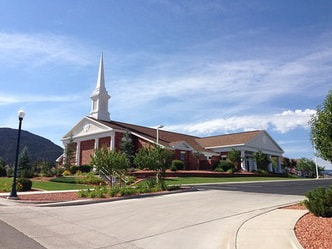 When I first heard his address in Conference, Elder Gong’s description of a gospel culture centered on Christ impressed me. Indeed, true gospel culture is centered on the Savior and solidified by covenants we make to serve Him and each other. Yet traditionally LDS subculture has centered on marital status as the marker of belonging. And that center has caused countless challenges for many LDS singles. Long time audience members know I once harped endlessly on our need to change the culture. The problem is in how singles think, yes. But the problem is also in how everyone thinks, and that thinking is manifested in culture. Elder Gong cuts through all of the bunk to the real heart of a Zion culture — making and keeping sacred covenants to become more like Jesus Christ.
God never looked at His children through the lens of marital status. I’m not entirely sure why we as a people ever did, but I rejoice in our culture changing for the better. A bridge across the gap  I also rejoice that Elder Gong’s message to center ourselves in Christlike covenants is not the first apparently aimed at changing the culture to adopt a more ennobling marker of belonging. Albeit not as directly as I have, various Church leaders have occasionally spoken about the divide between singles and marrieds in LDS culture and our need to bridge the gap. Elder Gong followed suit in addressing that divide but doing so in a somewhat less indirect manner.
I love that balance between including singles and promoting marriage and family. These two elements were never meant to be mutually exclusive! Those who understand the concept of covenant belonging see that truth plain as day. A place to belong 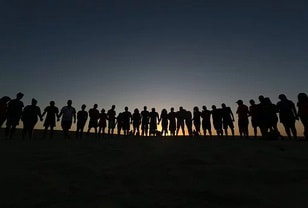 You may be wondering now what all of this has to do with my near miss of a heart attack. It’s very simple. I belong as all LDS singles do to a community bound together by covenants to serve the Lord and serve one another. The day after my near miss, my ministering brother and a member of the bishopric were in my home visiting with me and providing a priesthood blessing. Now, I know that doesn’t happen everywhere. I’ve been in some of those wards where it doesn’t happen. But if you find yourself there, I can assure you it will pass and you will come to a better place if you stay faithful to your covenants and do your best to practice covenant belonging. The Lord is mindful of all of us. I know He’s been mindful of me. Feeling that love has renewed my desire to be true to my covenants and to exemplify God’s definition of real belonging that we can find therein. And it is by living covenant belonging that we can best feel that love. And that will bring us more joy in our journey.
 Our LDS culture hands each of us a life plan describing how life is supposed to go. We go on a mission, do college, start the career, and somewhere in that mix get married. Then we live happily ever after with our eternal companion. But the lives of many LDS singles differ greatly from that story. Some haven’t married, others divorce, and still others lose a spouse to death. Whatever the reason, those who find themselves single when they don’t want to be consider that happily-ever-after story nothing more than a fairy tale. And LDS singles deal with the shock of that unexpected life chapter in multiple ways. Some enter paralysis, unable to move outside of their newly found rut. Some despair, thinking all hope is lost for them. Others question themselves, wondering what sin they committed to deserve losing the blessings they were promised. Other responses run the spectrum of possibilities. Yet no matter the reason or the response, one truth continues to shine brightly. Just because your life hasn’t turned out the way you anticipated doesn’t mean all is lost. There is always hope because there is always Christ. And we take the first step to grasping that hope when we ditch the plan our culture has been feeding us. Get a better map  Whatever your destination, you need an accurate map. A map that doesn’t match your current landscape will do nothing more than obstruct and frustrate you. It’ll never help you find your way. And that won’t change until you get a better map. That’s why most LDS singles need to ditch the life plan our culture feeds us. It doesn’t represent their current landscape. Perhaps it was fine for where they were, but it’s not a good map for where they are right now. Want to move forward with your life? Get a better map! That better map will one you create after you partner with the Lord. President Ezra Taft Benson taught that Christ can make more out of our lives than we can on our own. He has the better map we need. When we turn to Him, He’ll guide the next steps of our journey. Let go of the past  Still, some among us insist on keeping that defunct life plan despite its mismatch with their current landscape. Accordingly, they feel stuck, unable to move, because they can never live that plan. Try as they might, they can’t travel back in time to make different choices. We all must play the hand we’re dealt. While in college, I had the possibility of conforming to the life plan. But that ship has long since sailed. So any insistence on my part to hold on to this life plan is insanity. I’d be grasping at lost opportunities that’ll never be anywhere but in the past. And no one can move forward until they let go of the past. Why would any of us fight against reason and keep ourselves immobile by holding on to the past? Reasons will vary with the individual, but many singles associate belonging with conforming to that cultural life plan. The need to belong is a basic human need, and so they don’t want to accept the possibility that need won’t ever be met. Follow His plan And that’s the lie from our culture that we shouldn’t believe. When the mark of belonging is being married with kids, you’ll never feel like you belong while you’re single. Singles by definition aren’t married, which means by definition they don’t belong. But you don’t have to believe that. You don’t have to believe what’s handed to you. You can adopt your own mark of belonging, one centered on Christ and your desire to be true to the covenants you’ve made with Him. And adopting a personal ministry can help you do just that. When you partner with the Lord and surrender yourself completely to the personal ministry He shows you, you’ll look forward to the goodness you can contribute into the lives of others. The better map you need for your journey involves a personal ministry. And the Lord can use your focus on others through the vehicle of a personal ministry to help you let go of the past, embrace the joy to be found in facing forward, and make more out of your life than you can alone. So ditch the plan our LDS culture feeds us about life and partner with the Lord. He’ll heal you and help you to move forward. He’ll show you the next steps you need to take. And He’ll guide you in your personal ministry as you focus on contributing goodness into the lives of others. And that will bring you more joy in your journey.
Is the new meeting schedule working? What improvements have we seen from emphasizing a greater effort to study the gospel in the home? And have we lost anything along the way with implementing these new changes? Some may think it too early to say, but I’m convinced these changes announced by the Brethren as the result of revelation received from the Lord are nothing but good. In fact, I don’t think the word good does them justice. I think they’re outstandingly amazing. Embrace more effective meetings  First, I have to say I love two-hour church! I wish I had this growing up, on my mission, and in college. But better late than never. Elder Bednar encouraged us to see beyond the superficial logistical changes in the meeting schedule, and I do see this change as providing more than an “extra” free hour on the Sabbath. Perhaps the most immediate effect I’ve seen thus far is a greater attention to make the most of that second hour. Whether it’s Sunday School or my quorum meeting, I’ve seen my leaders be more intentional about using what time they have, if for no other reason than that they have less of it. And that’s great. Living with intention precedes joyful living. It’s the antithesis of the living on autopilot which most people practice, a habit leading to mediocrity and a lackluster life. I’ve truly enjoyed my meetings more now that the time spent in them is more precious. That has translated into a closer and deeper interaction with the Spirit, which is part of the reason why we meet together to begin with. Feel the Spirit more  Now, I don’t know this from personal experience because I don’t have my own family yet, but I’ve heard other ward members testify of greater unity in their family and the joy they’ve felt in fielding questions from their children regarding gospel principles. The Church has always been about strengthening families, and this move in that direction is truly inspired. Not having my own family, I have an “extra” hour on Sundays, which I typically use in extended personal scripture study. I don’t follow the Sunday School study schedule because I felt prompted to travel a different road. But my life has been blessed as I’ve used this “extra” hour for my own study. I’ve also heard of singles who have been blessed by gathering together in their own groups to study what their married friends are studying in their homes with their families. I’m not a member of such a group (though I might be if I knew of one that met weekly), but I can imagine the blessings that would come to singles who have that arrangement in their life. They could enjoy the same closeness with the Spirit and to one another that families experience among themselves. Change in the culture 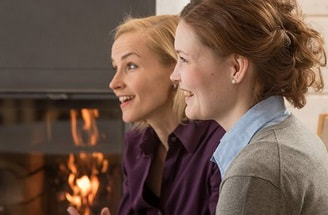 For me, however, the most exciting change from home-centered church has yet to be seen fully. I believe a cultural change is in the works that will benefit LDS singles everywhere. This change has already been ongoing, but the practice of home-centered church will greatly accelerate it. Traditionally, LDS culture has centered around Sunday meetings in general membership wards. The mark of belonging has been being married with kids, and so many singles openly display their lack of belonging just by showing up without a significant other. Of course, different wards are more accepting than others, but that’s been the general reality over the past few decades, if not longer. Enter home-centered church. By centering the worship experience in the home, the Church has effectively marginalized the differences between singles and marrieds that were once glaringly apparent. Now that church has become about supporting what’s done in the home, we’ll now see a change in the mark of belonging within the culture to one centered on Christ and our willingness to make and keep as many covenants with Him as we can. This is great news for LDS singles, because every single can belong in that culture. The changes announced by the Brethren regarding home-centered church are outstandingly amazing. Many glorious days lie ahead of us. As we follow the counsel of the Brethren to adopt the changes revealed by revelation, the Lord will bless our lives with an outpouring of His Spirit. Our culture will become more inclusive, and we’ll become more united as a people. And that will bring more joy in our journey.
Yet I decided to focus on the Prophet since we should all know what he said in the most recent General Conference. This did narrow the field considerably, yet it didn’t solve my dilemma; the Prophet spoke four times during Conference. Finally, I settled upon President Nelson’s remarks entitled “The Correct Name of the Church.” Why this one? Certainly I see parallels between President Nelson’s remarks and the cultural changes I’ve repeatedly supported in the broader LDS culture. But something more here intrigues me. The Prophet spent a good 15 minutes in General Conference talking about something that superficially doesn’t seem wildly important. “What’s in a name?” the Prophet asks. He then responds, “When it comes to the name of the Lord’s church, the answer is ‘Everything.’” Leaning on revelation  I didn’t think I’d hear about this topic again when the style guide revisions President Nelson referenced originally appeared. But I’ve long considered them important. I remember sharing the correct name of the Church of Jesus Christ of Latter-day Saints while attending my 10-year high school reunion. Living in the Bible Belt where my father was stationed when I was in high school provided me many opportunities to stand tall for my beliefs. I found more at the reunion. The organizers asked everyone in advance to provide a few sentences to catch everyone else up on what had occurred since graduation. I of course included my full-time missionary service in my blurb. Eventually conversation at the reunion turned towards my membership in the Church, and people began asking me questions. When one of them used the word Mormon in asking a question, I followed the answer with “But I don’t really use the term Mormon. I prefer to use Latter-day Saint.” “Oh, I’m so sorry!” came the reply. “ I didn’t mean to offend.” “I’m not offended,” I said. “I just have my preferences.” I then shared the same scripture President Nelson shared in his Conference address and explained I wanted to use the name the Savior provided through His Prophet. Recognizing what’s “inconsequential”  That was my attitude back when President Hinckley was the Prophet. I can remember him speaking about the name Mormon in Conference, saying in effect the Latter-day Saints have taken a pejorative name and made it shine. Now it seems the current Prophet is leading the Church away from that name. Even what was the Mormon Tabernacle Choir recently expunged the word Mormon from its name. This may be another sifter separating the wheat from the tares. Shortly after President Hinckley spoke in Conference about how ladies should wear only one pair of earrings, one of my Institute teachers criticized him for speaking about something so “inconsequential.” My teacher’s criticism of the Prophet took him off the covenant path and on the road to apostasy. That “inconsequential” admonition from the Prophet sifted the less faithful out from among the more faithful. We might describe this latest “inconsequential” admonition from the current Prophet similarly. Using the proper name of the Church requires many more words than some may care to employ. But the promise which President Nelson gave to those who’ll do their best to conform to the Lord’s desire is anything but inconsequential.
Imagine that — “the likes of which we have never seen”! Centering on Christ through language  Of course, phrases like that carry significance because words mean things. Language matters. And that’s the essence of President Nelson’s argument to use the correct name of the Church. And that excites me. We need to be more intentional in our language, particularly regarding names and labels. I’ve long advocated replacing family ward with general membership ward (or just general ward) to describe the majority of our congregations. Such a move helps everyone feel included, thus moving us closer to the Christ-centered culture we need. Indeed, President Nelson encouraged using the correct name of the Church in order to emphasize the Savior. This is the Lord’s church. Including His name when we share the name of His church in any forum recognizes His proper role and centers us more fully on Him. So what’s in a name? Shakespeare’s Romeo may declare “a rose by any other name would still smell as sweet,” but there’s nothing sweet about removing the Lord from His proper place in His Church or in our hearts. Using the correct name of the Church honors Him whose church this is and centers us more on Him. And that will bring us more joy in our journey.
 This past Sunday I decided to attend a special singles meeting in my stake. I didn’t even know about the meeting until I went to church and saw the announcement in the bulletin: Special Meeting for singles tonight at the stake center. My question then is probably your question now. What’s a “special meeting for singles”? I had no interest in another fireside, because typically they’re just another helping of Sunday School. I get enough of that at church. But a “special meeting”? Needless to say, my curiosity was piqued. And so I donned my white shirt and tie later than usual and, at the appropriate time, made my way over to the stake center. As I walked in the door, a gentleman greeted me and asked if I were here for the fireside. Instantly I cringed. But, tampering down the anxiety attack within me, I replied, “Yes, I’m here for the meeting.” This brother directed me to the Relief Society room. Singles activities are often sparsely attended, but I guess the same influence that worked on me worked on others. The room was packed! I had to take a seat in the front corner of the room. Start by listening  I soon learned the purpose of the meeting. The stake presidency was looking through the responses to the recent survey — wait, survey? I thought to myself. What survey? I never got told about any survey! — and now they wanted to take the opportunity to listen. Hold up! Listen? You actually want to listen to us singles? Hallelujah! There is a God, and He hears and answers prayers! The meeting then became something free form, with individuals sharing feelings and perspectives on LDS singles life and what singles need. I of course have a lot to say on those topics. But I decided to listen myself. I wanted to learn what concerns were most prevalent so I could make my response more targeted to what people needed to hear. But I never got the chance to share anything. Many expressed frustrations with the family-centered LDS culture and with leaders who because of ignorance or apathy or whatever other reason aren’t sufficiently supporting singles. By the time I grasped the main themes of others’ comments, the stake president ended the meeting. Apparently there was another meeting to attend. But he did offer some closing words of encouragement before ending the meeting with prayer. Raise your voice  Not having the chance to share my voice, I quickly approached the stake president as soon as the prayer had concluded. As I shook his hand, I thanked him for listening. Not many leaders actually stop to listen, and I made sure he knew what a rarity his approach unfortunately is. We spoke briefly about what had just transpired, and I assured him that solutions do exist for all of the frustrations and negative emotions that had just been vented. Those solutions we can find in the restored gospel of Jesus Christ, but it takes a new way of thinking to see them. Most people aren’t taught to think in those ways, which is part of the reason why I have my blog and radio show. I then asked if it were okay for me to email some information that could bring added perspective on others’ comments. He consented, and with that, I had my mission. I knew what I needed to do. Act in faith 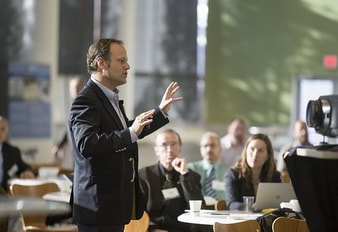 I rushed home and began writing that email. After listing all of the concerns I could remember from others’ comments, I organized those concerns into themes, and then planned my response. Because much of my response mirrors what I’ve already said on both my blog and the radio show, I decided to provide him with links to the relevant posts and shows. Even with the links, I quickly amassed four pages of material. I’m working on paring that down so it won’t overwhelm. I still can’t contain my excitement at what transpired. Indeed, I believe many are unaware of the wonderful opportunity within the grasp of leadership and the singles they want to serve. And I feel especially blessed to have leaders who chose first to listen to the people. Listening opens the door of possibility to establishing the support network that will improve the lives of singles and help to fill their needs. If you’re in a leadership position with stewardship over the singles, I urge you to listen to the people. As you listen, you’ll set the foundation to establish the support network necessary to minister most effectively to LDS singles. As that support network grows, more and more LDS singles will have more and more of their needs met. And that will bring more joy in your journey.
 We all have times when darkness surrounds us so much we can’t see any ray of light offering hope for a brighter tomorrow. That’s life, something all of us experience at one time or another. Of course, there’s always hope because there’s always Christ. The Light of the world can light our way so we can see and take the next step in our eternal journey. The dawn will always come. The sun will always rise, offering the hope of a new day. Whatever darkness surrounds us is never permanent. In this universe created for our journey in mortality, there’s always hope because there’s always Christ. As great as it feels to step out of darkness into the light, there’s always someone experiencing a dark time, so whenever we sit in sunshine, someone else droops in darkness. Do we remember our own experience with darkness enough to turn our hearts in compassion towards them? Sailors looking for the blessed shore in the dark have always sought the lighthouse — the beacon of hope as well as the warning of nearby danger. No matter our own individual circumstances, we all can lift those who despair in the darkness. We can be the lighthouse. Let your light shine  In the Sermon on the Mount, the Light of the world taught His disciples to shine their own lights, because “a city that is set on a hill cannot be hid. Neither do men light a candle, and put it under a bushel, but on a candlestick; and it giveth light to all that are in the house. Let your light so shine before men, that they may see your good works and glorify your Father which is in heaven” (Matthew 5:14-16). Certainly our righteous works can shine the light of example for others to follow. But our light can shine also from our attitude, our faith, and our hope that the sun will always rise and bring a new day. We can each believe in the bright and glorious future our Heavenly Father has prepared for each of us in this life. When we share that attitude, faith, and hope with others, we help them see their full potential. And seeing that potential is the first step to achieving it. Reaching out to others also exemplifies what we all must do to press forward towards achieving that potential, since no one achieves anything meaningful in life alone. We all need a larger community in order to become our best selves and live our best life. Warn your neighbor  Involving that larger community, however, can present a real challenge. Its greatest blessing is also its greatest bane. You can’t feel a sense of community unless the action occurs in both directions. If we aren’t reaching out to each other from both directions, one group will inherently feel disenfranchised. It’s common to see marrieds reach out to marrieds. But marrieds also need to reach out more to singles, singles need to reach out more to marrieds, and singles need to reach out more to each other. A part of that reaching out needs to involve education. We need to help each other to become aware of the connections we have to one another as fellow citizens of the Kingdom. Notice I didn’t say responsibilities or duties. I said connections. We’re all interconnected, even if we don’t feel we are. The challenge is for all of us to begin acting in ways that help everyone feel more palpably those already extant connections. Shine in the dark  That’s where being the lighthouse can take center stage. When we stop putting each other into boxes, quit looking through generational lenses, and see each other as God sees us, we both see more clearly our connections to others and provide an example for others to see the same for themselves. And that’s when the real magic happens. When you’re part of a community where each member truly cares about everyone, everyone can draw hope and strength from the love that permeates the group. Everyone both is connected and feels connected. But that can’t happen until everyone plays their part. Many marrieds are so caught up in their own world that they aren’t likely to take the initiative towards that wonderful unity of the faith. That means we singles must make the first move. We must be the change we seek in the world. So be the lighthouse. Shine your light of goodness into the world around you. Make your unique contribution that can bring hope and encouragement into the lives of others. When you adopt your own personal ministry to improve the lives of others, you’ll find your own life improved. And that will bring you more joy in your journey.
 I’ve read James’s famous discourse about faith and works many times. It’s an absolute classic. If you haven’t read it, check out James 2:14-26. This classic discourse on faith and works has always been one of my favorites. Yet in one reading not too long ago a new interpretation of these verses came to me. I saw them as I had never seen them before. And this new interpretation makes an absolutely classic discourse even more classic. What did I see? Many singles leaders, especially those serving on stake committees, confine their responsibilities to planning activities. They believe filling blank spaces in a calendar is the extent of their responsibility. If any of the singles they claim to be serving have legitimate needs, these leaders believe that the Lord will somehow provide for them. Their job is just to provide a program. Yet simply filling blanks in a calendar is very much like faith without works. They’re both dead. “What doth it profit?” I love how James opens his remarks about faith and works. He describes someone without clothes and starving who is told to be “warm and filled” yet not given clothes or food. Then James asks, “What doth it profit?” Obviously, nothing. And that same answer remains when the same question is posited about the attitude of many single leaders who think their only job is to plan activities. OK, you planned all these great activities. Now, what does that mean to the single adult who grieves over the death of a loved one? Or how about that newly divorced single who still feels the death of a marriage that was thought to last forever? What about the LDS single struggling with issues of identity after losing a job? Just calendaring events isn’t going to mean anything to any LDS singles who have real needs in the real world. So what does it profit that you planned all these activities? Just as well wishes will never clothe and feed naked, starving people, so filling blanks in a calendar will never by itself meet the needs of LDS singles. “Justified by works”  Yes, you can shew me thy faith without thy works, and I will shew thee my faith by my works” (James 2:18) Action is what brings real change into the lives of people. And action comes through works, not just faith. True, faith in its pure and true form will lead to action. But faith without action means nothing. To meet the needs of the people, we must act. You can show me your faith that the Lord will provide for the needs of LDS singles without you lifting even one finger to act in that direction, and in return I will show you my faith that the Lord will provide for the needs of LDS singles by working myself to meet what needs I can. I love the example James provides in Abraham. He produced works in offering his only son Isaac upon the altar, works motivated by faith. And through those works, his faith was perfected. In like manner, singles leaders who focus mainly on filling a calendar see singles activities as an end in themselves. But the truth is just the reverse; activities are the means to the end of meeting the needs of the people. Activities provide the platform from which leaders and individual LDS singles can minister to the singles in their midst. And in so doing, their faith becomes perfected through their works. “The body without the spirit is dead”  James provides the perfect ending to his classic discourse on faith and works with a simple analogy involving the body and the spirit. The body dies once the spirit departs. In like manner, faith dies once the works that should attend it cease. Also in like manner, singles groups can feel absent of life when leaders focus primarily on filling blanks in a calendar. These leaders often wonder why attendance is so small and what can be done to turn things around. We talked last week how to turn ailing singles programs around, but a key part of that transformation is the necessity for leaders to adopt the attitude we are discussing here and now. You must do more than just fill a calendar. You must fill your hearts with compassion and extend your hands to those you serve. You must focus on using the activities you plan as a means to the end of ministering to them and helping to meet their needs. When you do, you’ll inject life into your singles groups and light into your own life. And that will bring you more joy in your journey.
 After church on Sunday, a member of the stake high council asked me if I were going to attend the singles activity later that day. I confided that I haven't been attending because I don't feel welcome. Why should I dress up in a stuffy shirt and tie to sit on benches that aren't that comfortable only to be all alone? I can wear a T-shirt and sweat pants on my couch and be just as alone but far more comfy. So why go? In the ensuing conversation, I learned that he recognized the people hold the perspective of the dating forum. I then shared with him some of what I’ve shared about the dating forum and the activity club many times in this forum. We quickly came to agreement there, but then he simply repeated his invitation without any resolve to change anything. I said I’d think about it. Of course, I didn't go. I did think about that conversation, though, during the following days. Those thoughts led to an important realization: Clearly we see the problem in how singles view activities, but the problem will never be solved unless we take action. But exactly what action is anyone supposed to take? I’ve done this before and so know what to do. But do my local leaders? Based on the conversation I had Sunday, it doesn’t seem so. What can be done to turn around a local singles group so that people choose the support network over the dating forum and the activities club? That's the very question I’m going to answer right now. Get buy-in from leadership  The first thing you need to do is get buy-in from leadership. Nothing happens in this church unless leadership is on board. So you've got to get the vision of the support network yourself. And then you must sell that vision to leadership. And by leadership, I mean both married and single members serving in leadership positions. Everyone from the stake presidency to the high council to the bishopric to any singles leaders serving on both stake and ward levels must adopt the vision of the support network. Anyone who thinks their responsibility is just to calendar activities doesn’t have the vision. You've got to work with them until they adopt the support network. You’ll know they have the vision when they start playing their part in the support network. Those attending activities will actively greet and welcome everyone they can. They'll talk to people, helping them feel somebody cares enough to be interested in them. They'll also look for those sitting by themselves, offering to sit with them or inviting them to join a larger group seated together. Get buy-in from the people  Once leadership is on board, you’ve got to secure buy-in from the people. That means you instill the vision of the support network in every single adult so that they do the same things leaders do — connecting with people and helping them feel supported. Too often we think those in leadership positions do things no one else does. In some respects that's true, but more often than not, leadership is something everyone should display. Leadership is a choice, not a position. And leadership in spreading the vision of the support network is something every single adult should practice. Otherwise, you'll never have the support network. The arrangement of everybody helping everybody happens only when everyone reaches out to everyone. It can't be just those in leadership positions. Everyone has a part to play because everyone matters. Accept nothing less than glory  Support networks take time to build because you must change the way people think. And because we’re hardwired to follow habit, you're going to meet some resistance both from leaders who think their job is to do nothing more than plan activities and from singles who think in terms of the dating forum or the activities club. That's why part of leadership’s role is to instill the vision of the support network in everyone. You must tell people directly what you're trying to accomplish. You must show them what can happen when everyone gets on board with the vision. And you must invite them one by one to play their part in making that vision reality. It won't be easy, and it will take time. But it is possible. I know because I’ve done it. So be patient. Keep working. Love the people. Accept nothing less than glory, and in time you’ll see the support network start to take hold. You'll see people reaching out to each other. You'll see the needs of people being met. You’ll see that you can turn it around. And you'll feel more of the Savior's love for one another. And that will bring you more joy in your journey.
|
Author
Howdy! I'm Lance, host of Joy in the Journey Radio. I've been blogging about LDS singles life since 2012, and since 2018 I've been producing a weekly Internet radio show and podcast to help LDS singles have more joy in their journey and bring all Latter-day Saints together. Let's engage a conversation that will increase the faith of LDS singles and bring singles and marrieds together in a true unity of the faith.
Comment
Joy in the Journey Radio encourages the free discussion of ideas but reserves the right to remove and/or block comments which do not conform to LDS standards.
Donate
Joy in the Journey Radio offers many free resources to help LDS singles everywhere, but it certainly isn't free! Help Joy in the Journey Radio in its mission to improve the lives of LDS singles by donating today.
Posts by Month
December 2022
Categories
All
|


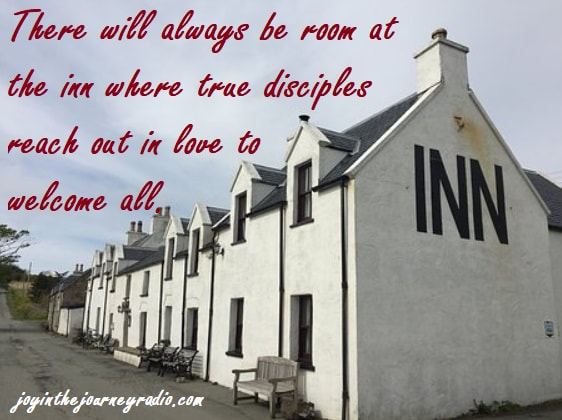
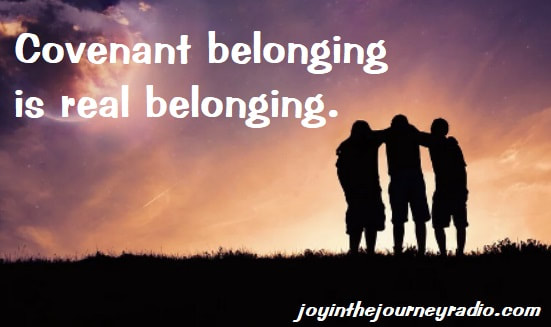


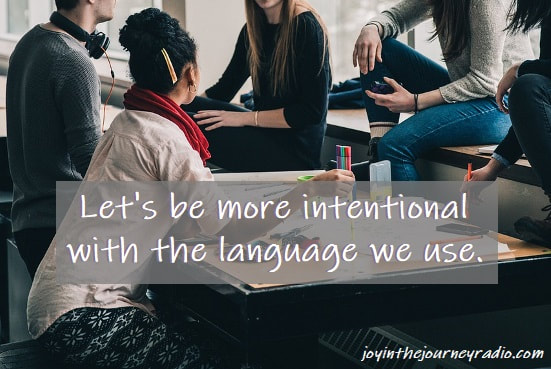
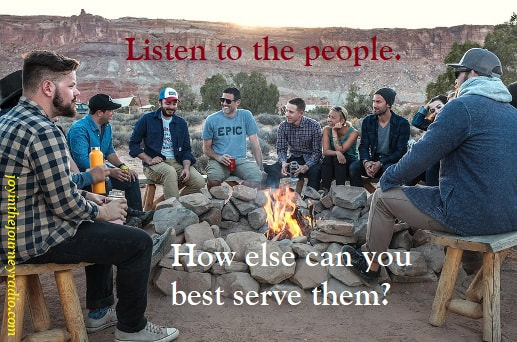
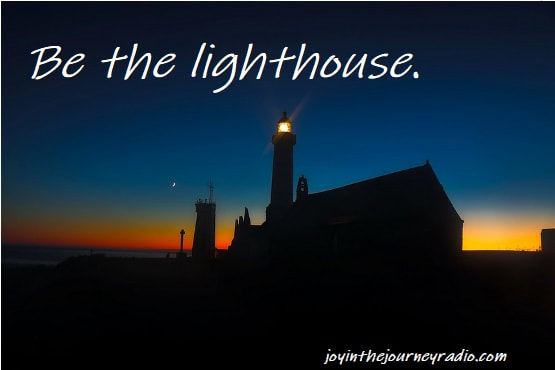

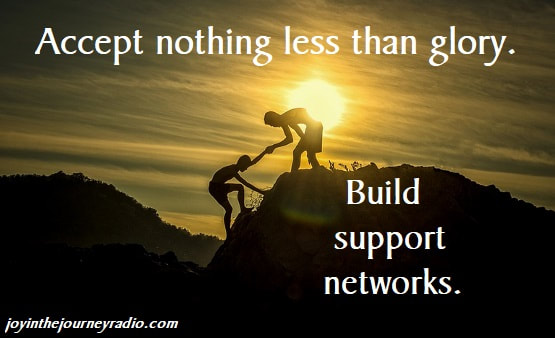
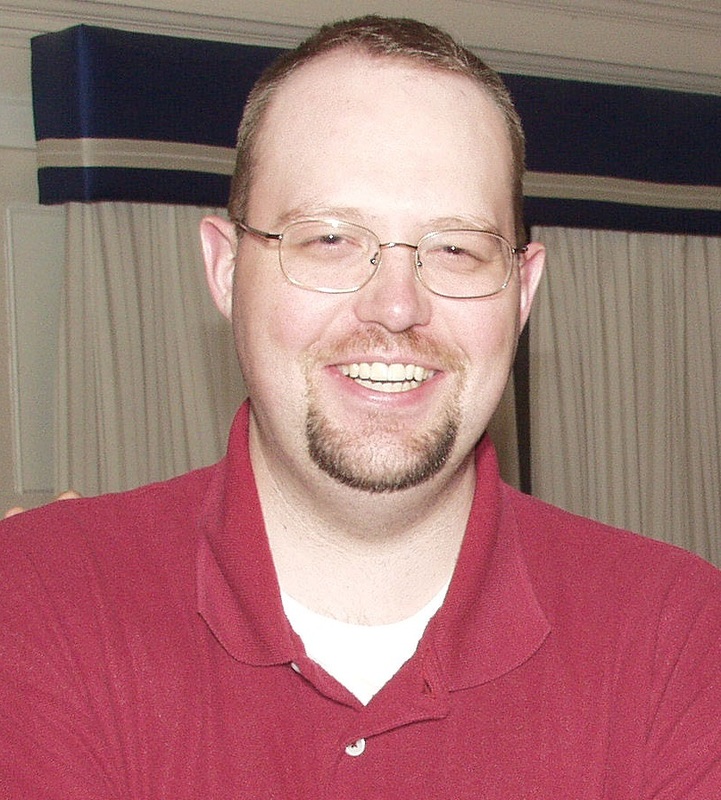
 RSS Feed
RSS Feed